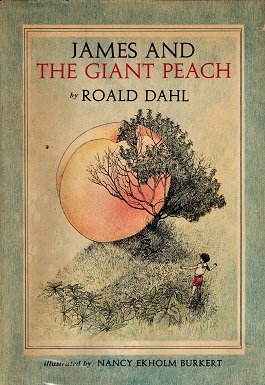William Golding
Explore the timeline of William Golding, the renowned British author best known for 'Lord of the Flies'. This detailed chronology covers key events in his life, including his birth in 1911, his service in the Royal Navy during World War II, and his Nobel Prize in Literature award in 1983. Discover the major milestones that shaped his career and influenced his acclaimed literary works.
Birth of William Golding
William Golding was born on September 19, 1911, in Newquay, Cornwall, England. He was the son of Alec and Mildred Golding. His father was a schoolmaster, and his mother was an active member of the women's suffrage movement. Golding's upbringing in this intellectually stimulating family environment shaped his educational and philosophical outlook. Golding would go on to become one of the most celebrated British authors, renowned for his insightful explorations of human nature.
Graduation from Oxford University
William Golding graduated from Oxford University in March 1935, with a Bachelor of Arts degree in English literature. Golding first spent two years studying natural sciences before switching to literature, reflecting his burgeoning interest in writing. His education at Oxford provided a foundation for his literary career, equipping him with skills and knowledge that would influence his future novels and essays. During his time at the university, Golding wrote poetry and became involved in literary circles.
Marriage to Ann Brookfield
William Golding married Ann Brookfield on September 30, 1939. Ann was an analytical chemist and the couple had two children together. Their marriage lasted until Golding's death in 1993. Ann Brookfield was known for her support of Golding's writing career and played a significant role in his personal life, providing stability and companionship throughout the years. Golding's family life often found echoes in his literary works, infusing them with depth and complexity.
Joining the Royal Navy
In September 1940, during World War II, William Golding joined the Royal Navy. He served with distinction, involved in various operations including the sinking of the German battleship Bismarck. Golding's experiences in the Navy deeply influenced his writing, infusing his works with themes of war and the duality of human nature. His naval service demonstrated his patriotism and dedication, and the events he witnessed would later inspire material for his novels.
Publication of 'Lord of the Flies'
William Golding's novel 'Lord of the Flies' was published on September 17, 1954. Initially rejected by several publishers, the book became a classic of modern literature. It explores themes of civilization versus savagery and the inherent evil present in all humans. The novel has been widely studied in schools and has had a lasting impact on literature and popular culture, influencing themes of survival and human nature in countless works.
Publication of 'The Inheritors'
Following the success of 'Lord of the Flies', William Golding published 'The Inheritors' on September 15, 1955. The novel explores the extinction of Neanderthals by the more advanced Homo sapiens, offering insight into human evolution and the nature of violence and survival. The book was celebrated for its innovative narrative structure, presenting a story from the perspective of Neanderthals and examining the theme of 'otherness'. Despite its initial mixed reviews, it has gained acclaim over the years.
Knighted by Queen Elizabeth II
William Golding was knighted by Queen Elizabeth II on December 31, 1979, in recognition of his contributions to literature. The knighthood was a significant honor that acknowledged Golding's literary achievements and his work's influence on British culture and society. As a knight, Golding joined the ranks of other distinguished writers and figures who had been similarly honored, further cementing his status as an eminent literary figure of the 20th century.
Nobel Prize in Literature
On October 6, 1983, William Golding was awarded the Nobel Prize in Literature. The Nobel Committee recognized him for his novels which illuminate the human condition and probe the challenges of living within civilization. The prize acknowledged his significant contribution to English literature, particularly noting his narrative craft and the deep moral questions that underpin his work. Golding's receipt of the Nobel Prize marked a peak in his career, affirming his status as a leading literary figure.
Publication of 'The Double Tongue'
'The Double Tongue' was the last novel written by William Golding, published posthumously in 1995. However, it was completed in 1992, during the last year of his life. The novel explores the life of an elderly Greek priestess, delving into themes of prophecy, religion, and female power. Although incomplete at the time of his death, it adds richness to Golding's oeuvre, showing his continued exploration of complex human themes even in his final years.
Death of William Golding
William Golding passed away on June 19, 1993, in Perranarworthal, Cornwall, England. His death was attributed to heart failure. Golding left behind a legacy of literature that includes novels, plays, and essays that continue to be studied for their profound insights into humanity. His exploration of moral dilemmas and dark psychological themes has left a lasting impact on readers and scholars worldwide. Golding's works remain a significant part of English literary canon.
Frequently asked questions about William Golding
Discover commonly asked questions regarding William Golding. If there are any questions we may have overlooked, please let us know.
What is William Golding best known for?
When was William Golding born?
When did William Golding win the Nobel Prize in Literature?
When did William Golding pass away?
Related timelines
More timelines connected to William Golding







